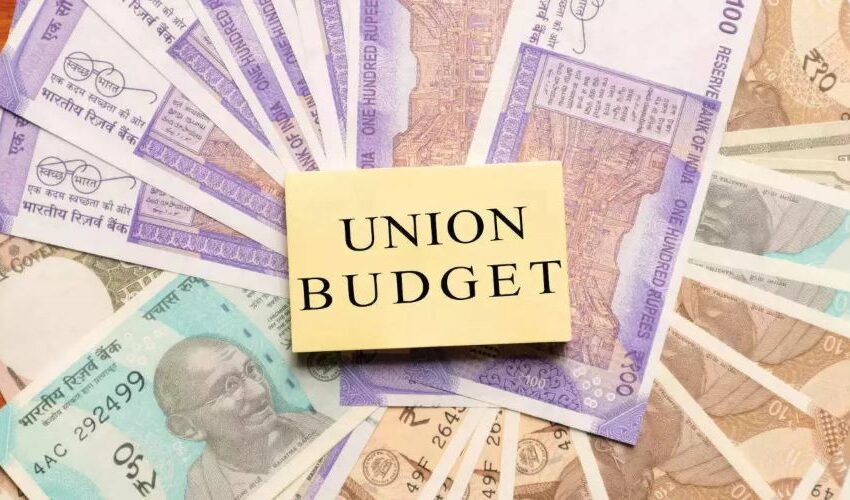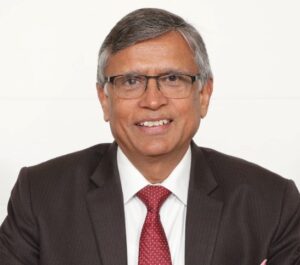Union Budget 2023-24 Education industry seeks more funds, internet penetration

Team L&M
Back in 2020 when the world came to a standstill, no one expected that the need to revolutionize education would be this urgent. The immediate virtual foundation that EdTech was able to create introduced a wave of technology that encourages every member involved in the education dynamics to upskill and empower themselves.
Last year, the Union Budget honoured the exponential rise of EdTech sector by allocating funds of ₹40,828.35 crores for higher education while a fund of ₹63,449.37 was granted for school education and literacy. Although this seems great from the macro perspective, there still are some challenges EdTech faces on a micro-level, which the sector hopes will be covered in the Union Budget 2023 set to be announced by Finance Minister Nirmala Sitharaman on February 1, 2023.
One of the key aspects that the EdTech industry is looking forward to being addressed is the need for technological infrastructure in small cities and towns. Tier 3 and Tier 4 cities still struggle with online education due to tech-based infrastructure challenges. Lack of good internet speed, digital devices or computer systems stands as a big challenge for online courses. The EdTech industry expects the government to make these services accessible to all. The industry also demand lowering of GST on online learning.
Rishabh Khanna, Founder& CEO, Suraasa

While it’s been necessary to keep our students and communities safe, it also highlights the need to invest in bridging the skill gaps that have developed due to a lack of in-person learning. Teachers need to be prepared as well. This means investing in professional development and training opportunities that will help us effectively implement blended learning methods in the classroom
and utilise the technology-enabled infrastructure.
Ritika Amit Kumar, Co-Founder & CEO, STEM Metaverse
The government has taken some extensive initiatives in skill development and has catered to STEM education macros. However, I would recommend focusing on micro factors as well, like reducing excise duty on lab equipment used in education, and also focusing on reducing GST on kits that are made in India. Additionally, a reduction of GST on STEM courses, content, VR, and AR equipment will ensure that experiential STEM education can be made available to all.”
Siya Seth, Founder & CMD, Skoodos

Gaurav Goel, Co-Founder & CEO, Toprankers

Alex George, Co-Founder & Managing Director, ITLH
We expect the govt to allocate provisions to help the education sector for territorial expansion and to encourage online learning, especially the skilled-based learning which can help create employability to a large extent. We want the Union Budget to encourage skill-based learning across Tier 2 and Tier 3 cities. We also expect an emphasis on technology-based learning on AI, blockchain, ar/vr, uiux and iot as also on think tanks, and practical based labs for schools & colleges.
Sarvesh Shrivastava, Co-Founder & MD, Eupheus Learning
The NEP 2020 aims to bring a digital transformation in imparting Pre-Kindergarten to 12 education which is laudable and much needed. However, while textbooks are tax-free the same policy is not applicable to digital initiatives by the schools and is taxed at 18 per cent. The Union Budget 2023-24, should correct this anomaly to give a fillip in accomplishing the vision of NEP-2020.
Mayank Verma, Co-Founder, Leadup Universe
Imperative for the Union Budget 2023-24, is to look at investment in the learning tech infrastructure ensuring multimodal learning to boost quality education and training. The use of digital technology in the learning process will make quality resources accessible to students till the last mile irrespective of their demographic and geographic locations. The reduction of GST on learning tech solutions can help make it affordable across the country, further boosting smart classroom deployment and usage. The budget allocation should look at subsidising the use of tools and technologies to help digital penetration for advanced learning solutions in 2023.
Ashish Rajpal, Founder, XSEED Education

the country and children will only benefit when it is implemented on the ground.
Sashwati Banerjee, Founder, Top Parent

A keen focus on technological skilling is essential for women, keeping in mind the shift of scope to technology-based
demands in various industries. In order for women to create their own businesses or pursue careers outside of
traditionally female-dominated professions like education, healthcare, etc., there has to be more support for
women-led firms and better educational possibilities with easy access to the same.
Mridul Ranjan, Co-founder, CuriousJr

The ed-tech community is expecting a budget that recognizes the importance of education technology and takes step
teaching students 21st century skills like Problem Solving, Creative and Critical Thinking, Digital Literacy, Experiential Learning and Global Competency to help students become the key decision-makers of tomorrow.
Tarun, CEO & Founder, Knimbus
The Union Budget 2023-24, must accelerate some of the foundational principles of NEP 2020 which are Access, Equity, Quality, Affordability, and Accountability. Given that digital driven access is the key theme of NEP 2020, the government should encourage setting up of a Digital Library ecosystem that can work in conjunction with Digital Universities that are being planned. Such digital content repositories will not just aid learners, but also support institutions and educators with classroom learning given
ease of access to curated and authentic content.
Roopali Mehra, Founder, Mytransform
In the Union Budget 2023-24, the government must focus on career awareness to drive employability. About 50 per cent of India’s population is below 25 years and for this segment to make India a talent powerhouse, it must have the right tools for informed career decision-making and engagement. Provisioning for such tools, albeit with a public private partnership model, within an
institution will enable informed decision-making skills in youth. We look forward to a budget outlay that focuses on
building a career ready generation along with strong education / skill credentials.
Anish Srikrishna, CEO, TimesPro
We expect that taxes on educational programmes will be reduced significantly from the current 18 per cent. This will ease the burden of millions of learners seeking a better future through skilling and upskilling programmes, thereby influencing employability and employment. We hope that the government will encourage greater private participation in its digitization efforts, especially where it concerns professional learning and skill based education. Industry partnerships with learning institutions can help to bridge the industry academia divide and steer our young population towards job readiness. The government must consider involving private participation to drive reach and engagement, to ultimately grow the GER to NEP target of 50 per cent and drive improved learning outcomes.
Vikas Gupta, CMD, Miles Education
The upcoming Union Budget should have a strong focus on education, particularly in the areas of implementing the NEP 2020 and reimagining university education. This includes increased funding for higher education institutions and a reconsideration of the current 18 per cent GST on educational and training services, including PG certifications and executive programs from institutions. Such a high GST rate acts as an entry barrier for many individuals to upskill themselves, thereby hindering the goal of building a skilled and competitive workforce, and driving economic growth in the country.
Gaurav Bhagat, Founder, Gaurav Bhagat Academy

and vocational courses targeted at the youth so that they may meet the current and future demands of the job market
and contribute to the nation’s economic growth.
Ratnesh Jha, CEO, Burlington English
The Indian subcontinent in the 21st Century is emerging to be a human skill factory for the world. A robust provision to digitize the educational grassroots and to identify the ‘communication dividend’ ruling our population is the next big step to make socio-economic strides internationally. The linguistic demography of India is a unique and exciting trump card and if played well, expert English language augmentation to the native speeches can give the nation a fair lead this century”
Lejo Sam Oommen, MD, ETS India
The Union Budget 2023-24 outlay must have provisions for ‘Internationalization’ at State and Central Government Universities, while also making India a destination for foreign students. Exchange programmes between global institutions and Indian universities will augur well for learners who are presently devoid of international exposure.
Radhika Shrisvastava, Executive Director, FIIB

Shishir Jaipuria, Chairman, Seth Anandram Jaipuria Group of Educational Institutions, Ghaziabad, Uttar Pradesh

Rs 1000 crore of the education budget is earmarked for faculty training and continuous professional development of teachers. Likewise, the government should target allocating 6 per cent of the GDP for education. Additional initiatives should be undertaken for funding and aiding institutions to develop digital infrastructure and set up research and innovation centres. Special emphasis should
be on promoting quality vocational education and skill acquisition. This shall help bring some of the 20 million out-of-school
children back into the fold of mainstream education.
Alka Kapur, Principal, Modern Public School, Shalimar Bagh, Delhi
Education sector has a lot of expectations, especially in the context of educational equality. Since the recent trends of teaching and learning have witnessed a steady inclination towards digitalization, the government is expected to come up with policies to facilitate digital education for all sections of society; so that underprivileged students are not left in today’s digital era. There should also be allocation of more funds for the development of educational infrastructure, and the government is expected to allocate additional funds for the establishment of subject labs rather than only classrooms so that students could be provided with experiential learning to keep their innovative sparks alive. Since the era of ubiquitous technology has revamped industry expectations and the government is expected to increase its expenditure on vocational courses, which are at par with global standards. There should be considerations on the allocation of funds for teacher training to equip the teachers with the skills to prepare students for the modern employment market. Moreover, to address various psychological challenges among students, the government should also focus on establishing more
emotional counselling centres, not just in urban areas but also in rural areas”
Devyani Jaipuriya, Chairperson, Dharav High School, Jaipur, Rajasthan

Comic (AVGC) are booming and require support to flourish.
Naman Jain, Director (Development), Silverline Prestige School, Ghaziabad, Uttar Pradesh

Rajiv Bansal, Director-Operations, Global Indian International School, Noida, Uttar Pardesh
Union Budget 2023-24 should focus on digitisation and internationalisation of education. Concepts like smart classrooms, modern teaching techniques and online education should be at the forefront. The government should allocate more funds and greater support to building public libraries, world class research facilities and vocational training institutions. In schools and colleges, the curriculum should be made skill based leading to employment and innovative concepts of learning should be incorporated into the syllabus for better learning outcomes. The government should also allocate a special budget for improving internet connectivity infrastructure and access to affordable 5G devices. Lastly, educational loans and scholarships should become more accessible so that education becomes more inclusive and can be accessed by deserving candidates irrespective of economic or social barriers.”
Damayanti Bhattacharya, Principal, Jasudben ML School, Mumbai, Maharashtra
A lot of funds have to be diverted, allotted to higher education and research development. The government also needs to think about reducing the 18 per cent GST on the education sector. Since we have a rich human resource, the government must invest in capacity building of this human resource. The Union Budget 2023-24 must take into account the fulfillment of the NEP 2020. Incentives, scholarships should be given to the economically weaker sections as well as to the meritorious, with a special attention towards girl child.
In the Union Budget 2023-24, we expect a budgetary fillip to be provided to all areas within India’s education sector. The Budget committed last year to the education sector was 2.6 per cent. The expectation is that at least 3-3.5 per cent of the Budget will be allocated to be spent on education, if not 6 per cent. There is an urgent and important need to transform the education system. For example, modern tools like ChatGPT require institutions to have a strong technology infrastructure and skilled human resource teams that understand how to deal with this rapid change in technology. The government has the desire to increase the gross enrollment ratio (GER) in higher education to 50 per cent. However, the institutions that are fueling this growth are largely private institutions.
On the contrary, the support they get is very limited. Speaking of intellectual capital, such as access to academic databases, journals and books, if India could invest in them at a national scale and make them available to institutions, it will go a long way in
transforming the ecosystem. In addition to this, if low-cost funds could be made available to institutions committed to excellence,
by the government, the institutions will be able to grow much faster.
The government should allocate more for practical learning programs where students get a platform where they can earn while learning because this aspect does not only require investment and support from the government but also from private industries. Long-term welfare policies like skill-centric learning should be enacted to increase pupils’ learning possibilities. A major focus should be made on shifting learning pedagogy from theory to practice where students can experience real-life projects for the duration of courses which helps them to become independent. Government should have special schemes or reserve funds for girls’ education. Research and innovation programs must also be promoted at school and UG levels for a better outcome. The government should adopt a caring approach and create policies that support pro-mental health policy positions for students. Scholarship benefits should be consistently increased without reduction. Simultaneously, keeping in view the government’s initiative of inviting foreign universities to the country, they
must also focus on improving the state of the private universities in India.
Prof YSR Murthy, Founding Vice Chancellor, RV University, Bengaluru, Karnataka
Our growing economy requires skilled manpower. We need to get our priorities right as we move towards a higher growth trajectory in the 25-year window during Amrit Kaal till 2047. There is a need to prioritise the education sector and allocate six per cent of GDP to it in the interests of human resource development. India can achieve the goals of NEP 2020, harness demographic dividend and achieve a five trillion dollar economy only through proper allocation of resources and their effective utilisation. In the last Union Budget for 2022-23, a slew of measures were announced for the Digital DESH, Digital University initiative, One-Class-One channel through PM eVidya initiative. While these are welcome, we need to do a lot more if India has to become a truly digital hub of the world, just as it has become a pharmacy hub of the world. As two thirds of the higher education sector is in the hands of the private sector, it is time to encourage private corporate philanthropy in a big way through fiscal and other incentives. We need to create an enabling environment to let the private sector come forward and establish new institutions. Ease of doing business is more important here than anywhere else.
Prof Sandeep Sancheti, Provost, Marwadi University, Gujarat
India is edging towards being a nuanced nation offering quality education, research, innovation, and networking. This is a result of enhanced policies that the previous budget reflects as being in alignment with NEP’s initiative to promote skill education, indigenous technologies, and digital universities. The same should be the flavour of this budget as well. It is well-known that higher education is more suitable for long-term R&D projects of futuristic nature and can lead India towards being reckoned as a force in every possible domain. The current spending of 3.1 per cent of the budget on education is more towards school education and less for higher education which needs a relook for enhancing R&D initiatives of nationally coordinated projects, funding both government and private sector institutions. An increase of allocation to 4 per cent would lead us to much better outcomes. This progression would be in sync with the expected gradual increase of the educational budget to 6 per cent as envisaged by the NEP.
Ajay Gupta, Co-Founder, Rishihood University, Sonepat, Haryana

Dr Dishan Kamdar, Vice-Chancellor, FLAME University, Pune. Maharashtra
The nation’s rebound from the COVID-19 pandemic has been a booster shot for the economy and Budget 2023 can be expected to reflect this confidence, which will translate into a positive impact on the Indian higher education system. A stronger push for digitization, which will also benefit the Indian higher education system, is one of the government’s priorities that we can anticipate in the Union Budget 2023-24. An increased budgetary allocation for tech enhancement will support Indian HEIs’ plans to raise their standards of excellence and become more competitive in a world that is becoming more digital and globalized. The government should also provide incentives to the telecom sector to invest, innovate, and improve infrastructure and internet connectivity, as well as provide digital devices at affordable prices, which will go a long way toward ensuring anywhere, anytime access to education for all.
Increasing funding for R&D is another significant way that the government can support the higher education system. Our institutions must invest in creating a research-oriented ecosystem that enables them to compare their performance to international standards of excellence, and the government’s attention to this issue will be a key enabler. This gains significance in light of the UGC’s plans to enable the international expansion of Indian educational institutions and establish foreign universities’ campuses in India.
Dr. Hitesh Bhatia, Associate Dean, School of Business and Law, Navrachana University, Vadodara
For the next few decades, India will remain the youngest economy in the world. We cannot afford to lose time if we wish to reap the demographic dividend. Every single penny spend today on schooling and developing educational infrastructure will provide us with productive manpower for the future. Though the Finance Minister increased the spending on education by 11.86 per cent in last year’s budget, it remains grossly inadequate to reach the government’s own target of spending 6 per cent of GDP on education
set under NEP 2020. Creating school infrastructure, appointing teachers and retaining them by paying timely salaries
should be the utmost priority of the Modi government for the coming five years.
Manjari Pandey, Assistant Professor, CMR University, Bengaluru, Karnataka
In the list of budgetary expectations, grants are primary as it contributes to infrastructure development. Budgetary motivation for research scholars is also crucial. The next concern should be tax breaks for learners. The currently standing 18 per cent GST, if reduced, can contribute to producing more professionals/entrepreneurs employed in the country. Nevertheless, upgraded technology and effective implementation of the same for NEP2020 is also expected.
Puneet Kothapa, President, The Narayana Group, Hyderabad, Telangana
We hope that the government will increase allocation for higher education in the upcoming Union Budget. The increase in funding would facilitate better infrastructure, financial aid, higher grants for research, and an investment in technologies such as AI and machine learning to improve overall quality of higher education. Funds must be allocated to the National Education and Technology Forum (NEFT) set up in April 2022 to promote the use of technology in education. The Indian higher education sector has several expectations from the government in the upcoming budget. An increase in budget allocation, the implementation of the NEP, and a pathway to a closer partnership between private industry and the government are among the key demands.






